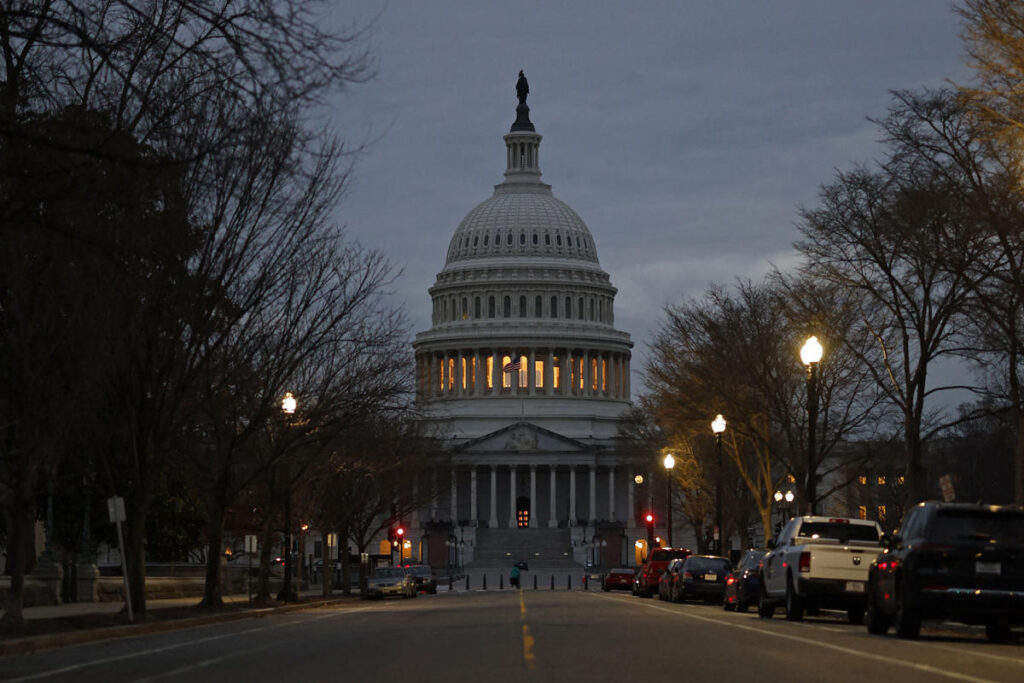In a recent legislative move, the Senate successfully passed a bill to keep the government funded for an additional three months, effectively averting a looming government shutdown that could have had major implications during the holiday season. The bill received overwhelming bipartisan support, passing with an 85-11 vote in the Senate after a solid backing from the Republican-controlled House, which voted 366-34. Despite the final vote occurring just after midnight, President Joe Biden is expected to promptly sign the bill, ensuring that essential federal services will continue uninterrupted. White House officials emphasized that federal workers, including military personnel and Border Patrol agents, will not be forced to work without pay, alleviating concerns for the millions who rely on government operations.
The new bill maintains government funding at existing levels until March 14, 2025, and includes critical provisions such as $100 billion in disaster relief and a one-year farm bill. However, it notably omits a contentious debt limit extension that had been a point of contention earlier in the week, as President-elect Donald Trump threatened repercussions for any Republicans who supported a funding package lacking this extension. This situation highlights the growing influence of Trump on Republican strategies as he prepares for a potential return to the White House. The situation is indicative of the challenges that lie ahead for Congress, particularly with tensions surrounding Trump’s agenda and the intricate dynamics within the GOP.
House Speaker Mike Johnson expressed relief regarding the bipartisan approach taken to pass the funding bill, emphasizing its importance in meeting the immediate needs of farmers and disaster victims while ensuring federal employees receive their wages during the holiday season. Johnson reassured the public that a government shutdown would not occur and conveyed a sense of unity among House Republicans despite recent challenges. Notably, discussions leading up to this decision involved strategy sessions where Johnson consulted with several Republican members, which ultimately led to the decision to proceed with a streamlined funding package that did not address the debt ceiling.
The legislative week preceding this vote was marked by intense negotiations and an unexpected pushback from Trump and associates, including billionaire Elon Musk, who insisted on including a debt limit provision. Their influence created significant complications, leading to the original bipartisan agreement faltering. Johnson faced mounting pressure and limited options after a backup plan that included Trump’s demands collapsed. Ultimately, a decision was made to preserve existing funding levels without extending the debt ceiling, a strategic choice that Johnson framed as a necessary compromise amid internal party disagreements.
In contrast to Johnson’s positive assessment of the bill’s passage, some Republican representatives voiced skepticism about the long-term viability of agreements related to the debt limit. The concept of a “gentleman’s agreement” regarding future spending cuts did not sit well with all members. Concerns were raised about the reliability of such informal pacts, demonstrating a lingering distrust in the feasibility of reaching consensus on contentious issues within the party. As the new Congress approaches in January, these internal divisions threaten to impact party cohesion and legislative priorities, particularly in relation to Trump’s evolving influence.
Ultimately, the dynamics surrounding this funding bill reveal the broader implications of Trump’s potential return to the presidency, underscoring the intricate balance of power and influence within the Republican Party. The approaches taken by House and Senate leaders suggest an attempt to navigate these complexities while maintaining essential government operations. As Biden prepares to sign the legislation, improved cooperation is illustrated yet again in a polarized political climate, although forthcoming challenges loom in the form of potential debt limit discussions and the evolving agendas of pivotal political figures. Marked by these developments, Congress must gear up for a tumultuous new session, particularly with the upcoming implications for spending and the management of the federal budget slated for further debate in 2025.

